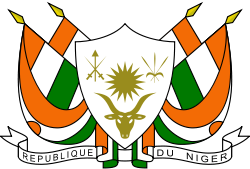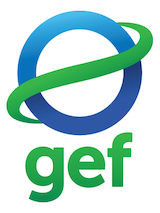Building Climate-Resilience and Adaptive Capacity in the Agricultural Sector of Niger
Building Climate-Resilience and Adaptive Capacity in the Agricultural Sector of Niger
The project, 'Implementing NAPA Priority Interventions to Build Resilience and Adaptive Capacity of the Agriculture Sector to Climate Change', contributes to the building of adaptive capacity to climate change in the agricultural sector of Niger. At the national level, government, NGOs, and business entities will strengthen capacity to integrate climate change risk reduction strategies into development policies and programmes. National ministries will have developed better-adapted policies and programmes that support planned and autonomous adaptive strategies. Institutional mechanisms for integrating, monitoring and evaluating adaptation across sectors and scales will enhance the adaptive capacity of Niger to address climate change risks. Through better adaptation measures and alternative financing mechanisms, the government will have implemented cost-effective measures of addressing climate change over the short terms and building foundation for middle and long terms measures.
Capacity will also be developed in the National Meteorological Department to facilitate downscaling of seasonal weather forecasts and packaging of information in a manner appropriate for rural farmers to make informed farm management decisions. This information will be disseminated using communal radio and co-financing will be mobilised for installing radio transmitters in areas that are currently out of range of the radio signal.
At the local level, fishers, farmers, pastoralists, labourers and others in the pilot sites will have strengthened their adaptive capacity to respond to additional risks and uncertainties posed by climate change. In particular women and vulnerable groups, will have enhanced their livelihoods, spread financial risk, and have strengthened skill development and education, thereby reducing their vulnerability. Local governments and management institutions will be more accountable and transparent, and will integrate climate change adaptation and disaster risk reduction into long-term development planning strategies.
Project Overview
The project, 'Implementing NAPA Priority Interventions to Build Resilience and Adaptive Capacity of the Agriculture Sector to Climate Change', contributes to the building of adaptive capacity to climate change in the agricultural sector of Niger. At the national level, government, NGOs, and business entities will strengthen capacity to integrate climate change risk reduction strategies into development policies and programmes. National ministries will have developed better-adapted policies and programmes that support planned and autonomous adaptive strategies. Institutional mechanisms for integrating, monitoring and evaluating adaptation across sectors and scales will enhance the adaptive capacity of Niger to address climate change risks. Through better adaptation measures and alternative financing mechanisms, the government will have implemented cost-effective measures of addressing climate change over the short terms and building foundation for middle and long terms measures.
Capacity will also be developed in the National Meteorological Department to facilitate downscaling of seasonal weather forecasts and packaging of information in a manner appropriate for rural farmers to make informed farm management decisions. This information will be disseminated using communal radio and co-financing will be mobilised for installing radio transmitters in areas that are currently out of range of the radio signal.
At the local level, fishers, farmers, pastoralists, labourers and others in the pilot sites will have strengthened their adaptive capacity to respond to additional risks and uncertainties posed by climate change. In particular women and vulnerable groups, will have enhanced their livelihoods, spread financial risk, and have strengthened skill development and education, thereby reducing their vulnerability. Local governments and management institutions will be more accountable and transparent, and will integrate climate change adaptation and disaster risk reduction into long-term development planning strategies.
Project Details
The project aims to benefit local communities by improving the reliability of water supply for agricultural production, especially for small farmers. More reliable water supplies will also improve agricultural yields, thus increasing average incomes and improving nutrition. Moreover, agricultural production will also be increased through the introduction of
drought-adapted crops. In addition alternative livelihoods for rural communities will be introduced to enhance their resilience in the face of climate change. The impact of droughts will be mitigated, to an extent, with the establishment of fodder banks.
Lessons learned from the implementation of projects will be disseminated to other regions/countries embarking on similar ventures to refine project strategies for the early achievement of results. Overall a better understanding of adaptation mechanisms will be achieved.
News
Key Results and Outputs
Outcome 1:Resilience of food production systems and/or food insecure communities enhanced in the face of climate change.
- Output 1.1. Disseminate seeds of tried and tested drought-resilient crop varieties.
- Output 1.2. Undertake farm trials of drought-resilient crop varieties that are not tried and tested
- Output 1.3. Construct and manage cereal banks.
- Output 1.4. Construct and manage fodder banks
- Output 1.5. Construct and manage fertilizer/pesticide shops.
- Output 1.6. Construct wells and drinking water supplies for both human and livestock use.
- Output 1.7. Expand the area under irrigation at a village level.
- Output 1.8. Stabilise soils in agricultural landscapes by constructing banquettes.
- Output 1.9. Stabilise soils in pastoral landscapes by constructing banquettes, planting trees and sowing seeds of drought-resilient fodder species.
- Output 1.10. Stabilise dunes around water basins.
- Output 1.11. Gabions and weirs constructed where loss of river banks to floods is threatening village infrastructure and agricultural land.
Outcome 2: Institutional capacity of the agricultural and water sector enhanced, including information and extension services to respond to climate change, including variability.
- Output 2.1. Develop institutional capacity to support climate risk management in pastoral and agricultural land management at the national, district and village level.
- Output 2.2. Develop institutional capacity to incorporate climate change risks into water supply and management.
- Output 2.3. Develop institutional capacity to create alternative climate-resilient livelihoods for farmers and pastoralists.
Outcome 3: Lessons learned and knowledge management component established.
- Output 3.1. Knowledge and lessons learned to support implementation of adaptation measures compiled and disseminated.
Reports and Publications
Case Study
Étude de Cas: Utilisation des SMS pour l'Amélioration de l'Information Climatique et l'Adatpation aux Changements Climatiques à Niger
Case Study: The Use of SMS to Improve Cliamte Information and Climate Change Adaptation in Niger
Project Brief / Fact Sheet
Project Brief: Renforcer la Resilience et le Capacités d'Adaptation du Secteur Agricole aux Changements Climatiques au Niger (2015)
Project Brief: Strengthening Climate Change Resilience and Adaptation Capacity of the Agricultural Sector in Niger (2015)
Le Programme PANA renforce les capacités de la Direction de la Météorologie (DGM) du Burkina
Brochures, Posters, Communications Products
Niger project covered in local newspaper La Griffe (The Claw)
ProDocs
Niger ProDoc: Implementing NAPA Priority Interventions of Agricultural Sector Climate Change
Multimedia
UNDP - GEF-LDCF Project in Niger
The United Nations Development Programme (UNDP), with the National Council for Environment and Sustainable Development in Niger, are working to implement urgent and priority interventions that will promote enhanced adaptive capacity of the agricultural sector to address the additional risks posed by climate change.
UNDP - GEF-LDCF Project in Niger - Part III
The United Nations Development Programme (UNDP), with the National Council for Environment and Sustainable Development in Niger, are working to implement urgent and priority interventions that will promote enhanced adaptive capacity of the agricultural sector to address the additional risks posed by climate change.
UNDP - GEF-LDCF Project in Niger - Part II
The United Nations Development Programme (UNDP), with the National Council for Environment and Sustainable Development in Niger, are working to implement urgent and priority interventions that will promote enhanced adaptive capacity of the agricultural sector to address the additional risks posed by climate change.
UNDP - GEF-LDCF Project in Niger - Part I
The United Nations Development Programme (UNDP), with the National Council for Environment and Sustainable Development in Niger, are working to implement urgent and priority interventions that will promote enhanced adaptive capacity of the agricultural sector to address the additional risks posed by climate change.
Monitoring and Evaluation
Project M&E procedures will be designed and conducted by the project team and the UNDP-CO. The principal components of the Monitoring and Evaluation Plan are outlines using the different activities within the project.
Project Inception Phase
- Annual and quarterly work plans will be the main management instruments governing the implementation of the project. The project will prepare an Annual Working Plan (AWP) with well-defined result indicators, using the standard format for UNDP-supported projects. AWPs will be appraised and endorsed by the PD/MNRE and UNDP. Quarterly work plans will also be prepared, consistent with the AWPs
- A Project Inception Workshop (IW) will be conducted. The purpose and objective of the IW will be to provide a detailed overview of UNDP-GEF reporting and monitoring and evaluation (M&E) requirements, with particular emphasis on the Annual Project Implementation Reviews (PIRs) and related documentation, the Annual Project Report (APR), Tripartite Review Meetings, as well as mid-term and final evaluations. The IW will also provide an opportunity for all parties to understand their roles, functions, and responsibilities within the project's decision-making structures, including reporting and communication lines and conflict resolution mechanisms
Monitoring Responsibilities and Events
- A detailed schedule of project review meetings will be developed by the Project Management Unit (PMU), in consultation with the National Steering Committee and incorporated in the Project Interventions Inception Report. Such a schedule will include: (i) tentative time frames for Tripartite Reviews, Management Support Group, and (ii) project related M&E activities.Day-to-day monitoring of implementation progress will be the responsibility of the National Coordinator based on the AWP and its indicators.
- Periodic monitoring of implementation progress will be undertaken by the UNDP-CO through quarterly meetings with the National Coordinator, or more frequently as deemed necessary.
- Annual Monitoring will occur through the Tripartite Review (TPR). This is the highest policy level meeting of the parties directly involved in the implementation of the project. The project will be subject to TPR at least once every year. The first such meeting will be held within the first twelve months of the start of full implementation. The National Coordinator will prepare reports that will be compiled into APR by the MoE at least two weeks prior to the TPR for review and comments.
- The Termianl Tripartite Review is held in the last month of operations. The MoE is responsible for preparing the Terminal Report and submitting it to UNDP and the GEF Secretariat. It shall be prepared in draft at least two months in advance of the TTR in order to allow review, and will serve as the basis for discussions in the TTR. The TTR considers the implementation of the project as a whole, paying particular attention to whether the project has achieved its stated objectives and contributed to the broader environmental objective. It decides whether any actions are still necessary, particularly in relation to sustainability of project results, and acts as a vehicle through which lessons learnt can be captured to feed into other projects under implementation of formulation.
Project Monitoring and Reporting
The following reports are the responsibility of the PMU and the UNDP-GEF extended team: inception report, annual project report, project implemtation review, quartely progress reports, periodic thematic reports, and the project termination report. The project will be will be subjected to at least two independent external evaluations. An independent Mid-Term Evaluation (MTE) will be undertaken at the end of the second year of implementation. The MTE will determine progress being made towards the achievement of outcomes and will identify course correction if needed. An independent Final Evaluation (FE) will take place three months prior to the TTR meeting, and will focus on the same issues as the MTE. The FE will also look at impact and sustainability of results, including the contribution to capacity development and the achievement of global environmental goals. The FE should also provide recommendations for follow-up activities.
Learning and Knowledge Sharing
Results from the project will be disseminated within and beyond the project intervention zone through existing information sharing networks and forums. The project will identify and participate, as relevant and appropriate, in scientific, policy-based and/or any other networks, which may be of benefit to project implementation though lessons learned. The project will identify, analyze, and share lessons learned that might be beneficial in the design and implementation of similar future projects.










